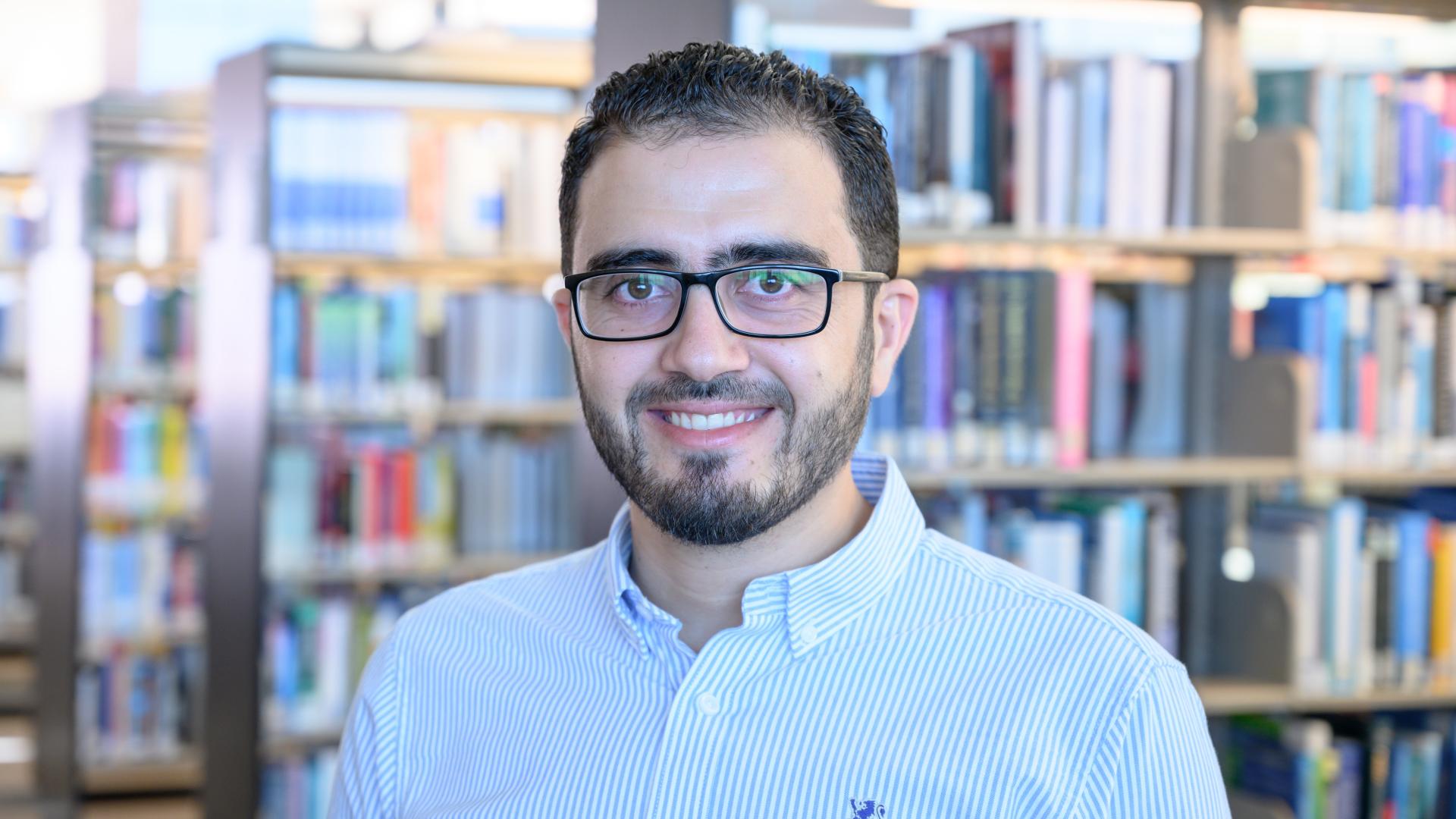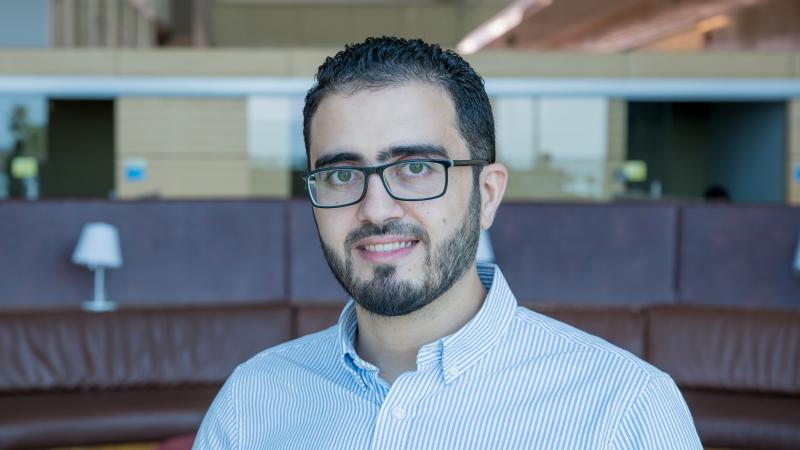By David Murphy
KAUST Ph.D. candidate Mohamed Abdelwaheb Bahloul recently won first place at the IEEE International Multi-Conference on Systems, Signals and Devices 2021 (SSD’21) PhD Students Contest. The contest provided a showcase for students’ original work related to electrical engineering and information technology.
Bahloul was awarded first place for his Ph.D. work titled “Bridging Physics-based Fractional-order Modeling and Data-driven Approaches for Characterizing and Monitoring Cardiovascular System." The award-winning project proposes a smart platform for the non-invasive assessment of arterial stiffness to predict cardiovascular pathology.
“It is an absolute honor to win first place in the IEEE SSD’21 PhD Students Contest. It is so inspiring. For me, it is a great recognition of my contribution as a researcher in bioengineering. I am really proud and grateful to my advisor, Professor Taous-Meriem Laleg Kirati, for her constant support and encouragement,” he said.
“I would also like to thank our collaborator Dr. Ali Haneef, associate consultant cardiac surgeon at the King Faisal Cardiac Center, King Abdulaziz Medical City, for his valuable advice and continued assistance.”
Predicting cardiovascular diseases before they happen
As part of a broader KAUST smart-health initiative, Bahloul and Professor Taous-Meriem Laleg in the KAUST Estimation, Modeling and ANalysis (EMANG) research group are currently developing a novel surrogate measure of arterial stiffness using non-invasive arterial pulse waveforms. To validate their proposed platform, the team has developed reliable data processing and analysis algorithms based on combined signal processing and artificial intelligence (AI) tools.
“First, we developed and validated a novel fractional-order modeling framework to represent the whole arterial network accurately. We developed novel appropriate identification and estimation techniques to calibrate the proposed models with the fractional-order paradigm's properties. Subsequently, we correlate the fractional differential order estimated from non-invasive pulse wave measurements to arterial stiffness using synthetic and actual human/animal data.
“Then, to understand and analyze the multi-factorial disorders associated with arterial stiffness and cardiovascular pathologies, we designed a data-driven model using AI. We combined the developed fractional-order arterial stiffness surrogate with signal processing features together with classical clinical parameters of the patient such as body mass index, gender, age, activity (rest, or after exercise), and heart rate to predict the cardiovascular patient state.
“Finally, we are working on implementing developed algorithms and clinical testing in collaboration with the King Abdullah International Medical Research Center. We envisage that our smart platform can be used as a diagnostic tool to predict cardiovascular diseases even before they happen. In other words, we hope our device can help to save many lives from one of the leading causes of death worldwide,” he concluded.

